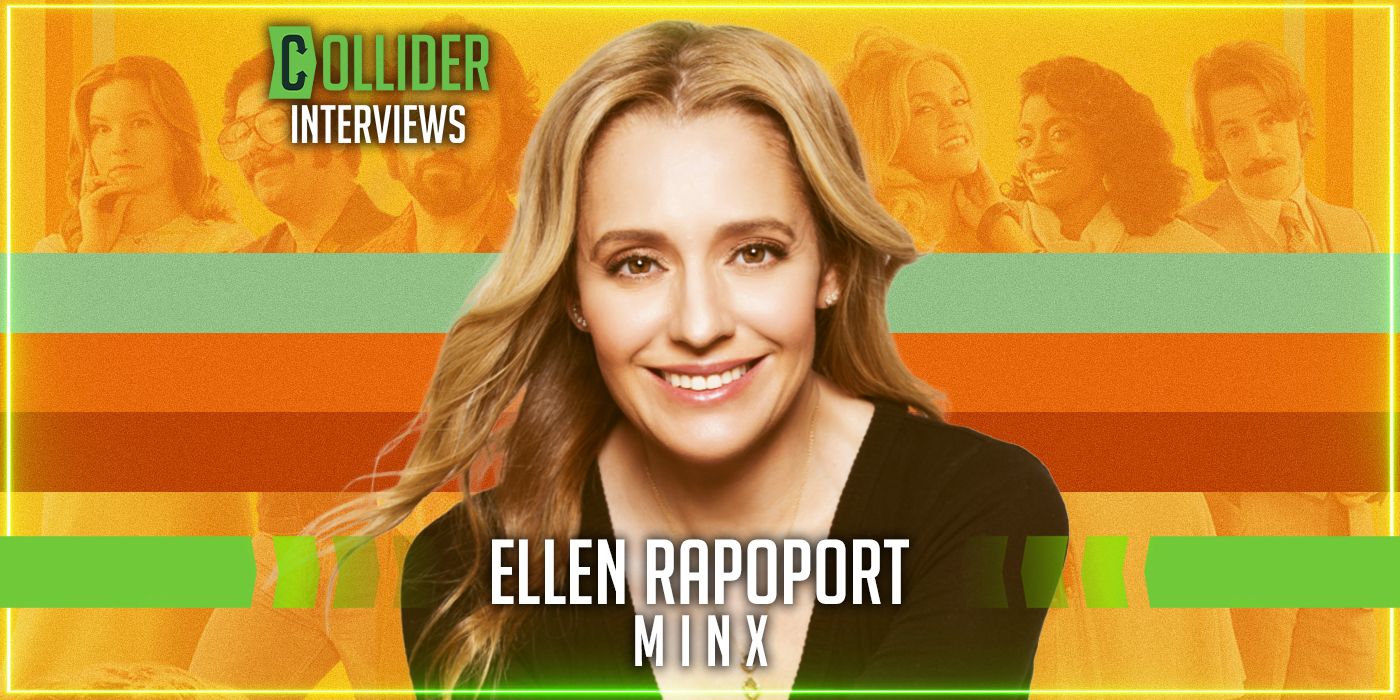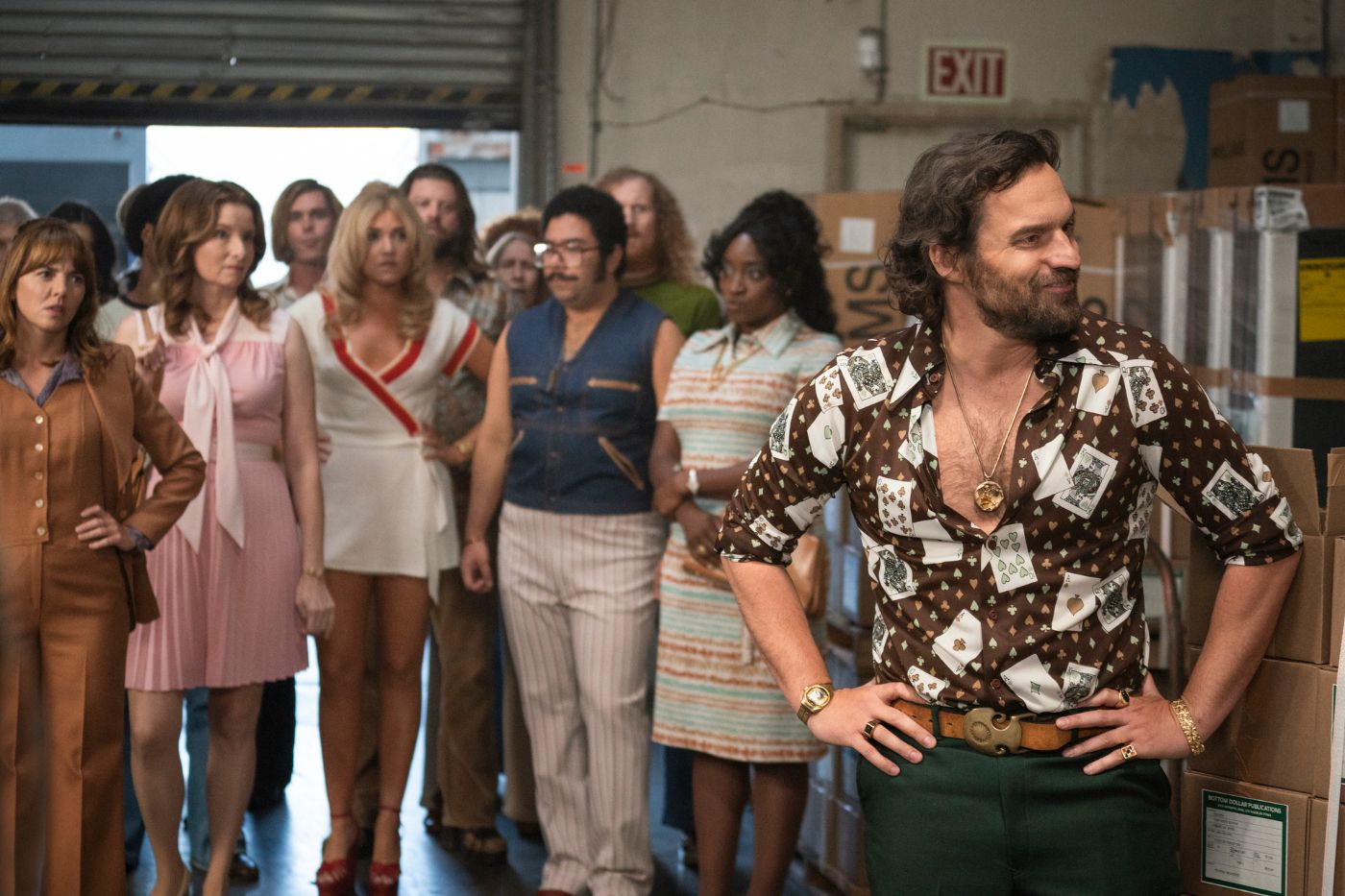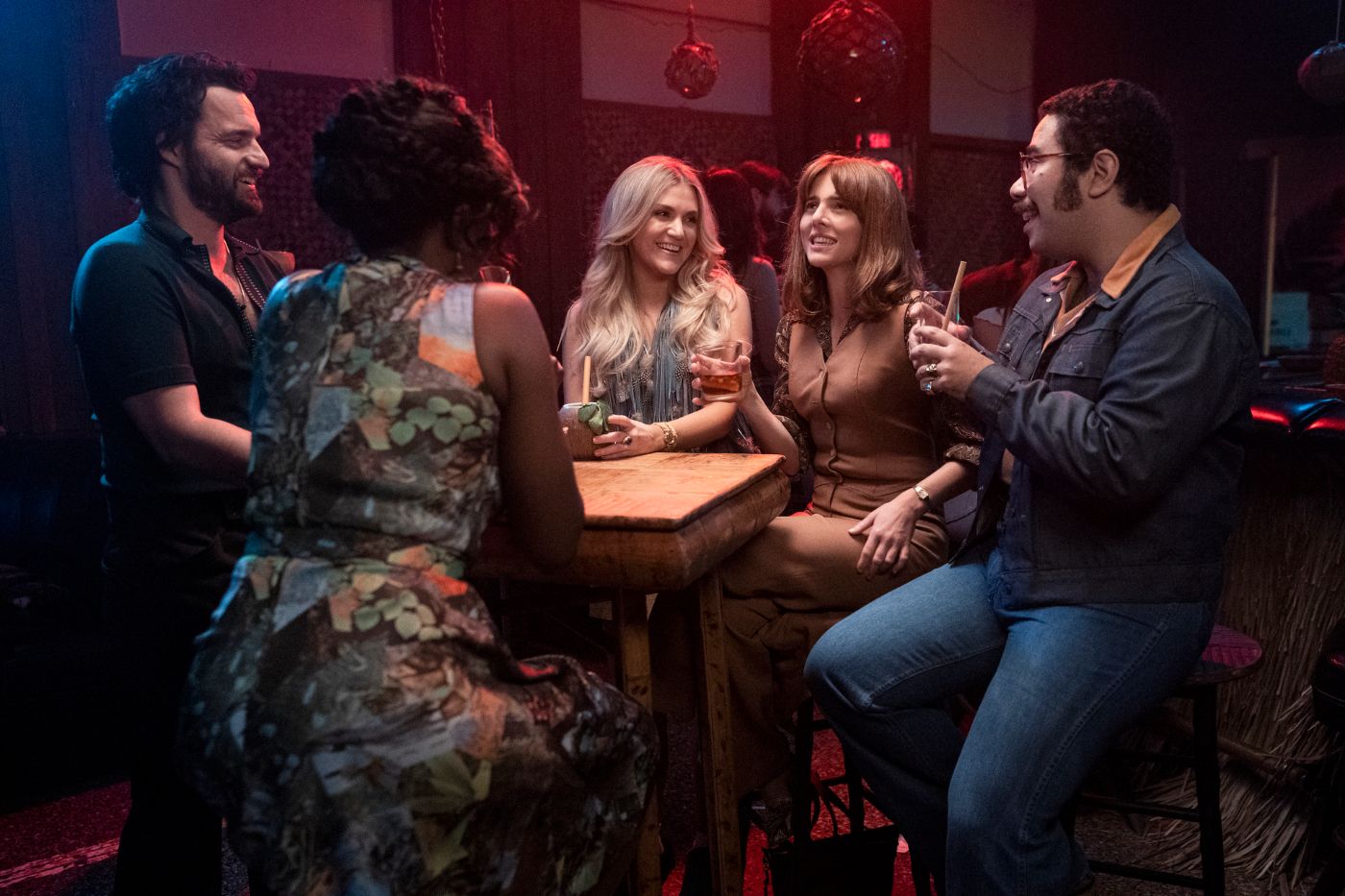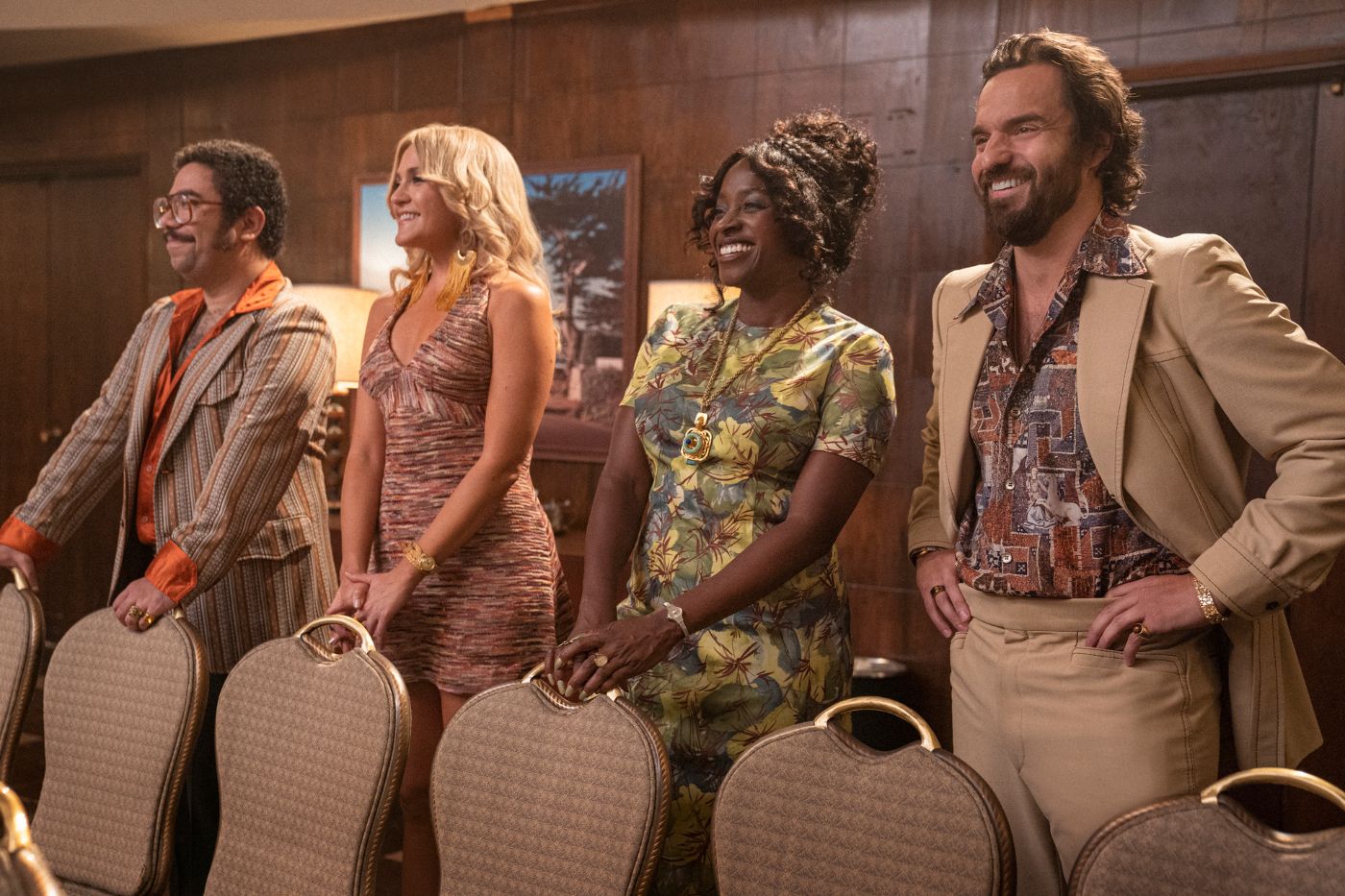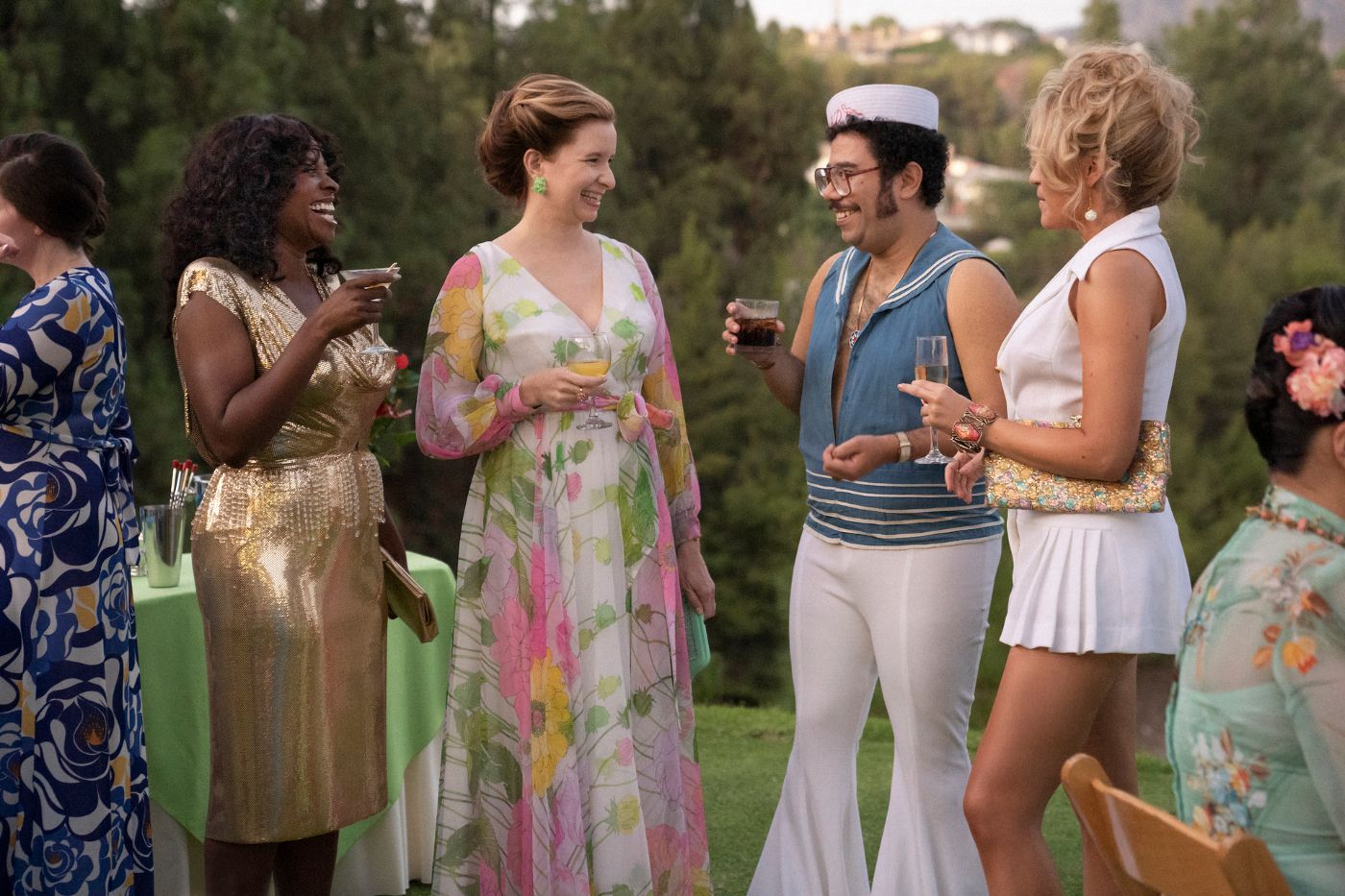From creator/showrunner Ellen Rapoport and executive producer Paul Feig, the 10-episode HBO Max Original comedy series Minx takes place in 1970s Los Angeles and follows self-proclaimed feminist Joyce Prigger (Ophelia Lovibond), as she pursues her dream of putting out a magazine that will change the lives of women. When she crosses paths with Bottom Dollar porn publisher Doug Renetti (Jake Johnson), Joyce quickly realizes that, in order to achieve her goal and further the feminist revolution, she might need to do things a bit differently than she expected, thereby turning her original vision into the first erotic magazine for women.
During this 1-on-1 interview with Collider, Rapoport talked about how this workplace comedy and story about a feminist porn magazine evolved into what it is now, the challenge of pitching this show to networks, keeping the vibe on set pretty chill and relaxed, wanting to always steer away from the clichés, the Joyce and Shelly (Lennon Parham) sister dynamic, the hope for a possible second season, and the trick to finding the confidence to be a showrunner.
Collider: How did this show come about? What was it about this world, this story and these characters that made you want to tell this story?
ELLEN RAPOPORT: I read a couple of magazine articles about the actual magazines like this in the seventies, like Viva and Playgirl. I had seen the magazines before, but what I hadn’t realized was that these were actually intended to be feminist magazines and that these workplaces were populated by feminists and pornographers working together to put out the magazines. Obviously, I thought that was a very rich idea for a workplace comedy. And then, I started reading the magazines themselves and delving into that. What I thought was also interesting is that all the articles that they seemed to be writing were about issues that I think we’re still talking about today, like abortion, medical rights, and the emotional labor that women take on in parenting. It felt like a great way to delve into things that are still happening now, but with a period lens on it.
Was this a hard show to pitch and sell to people? Was it challenging to get people to understand the tone you were going for?
RAPOPORT: It was not an easy sell. I don’t necessarily think the tone was hard to convey because I acted out scenes, for better or worse, from the pilot, so I think they got the tone. What the problem was for most people is that they said, “We love the pitch, but we’re not gonna put full-frontal male nudity on our service.” The male nudity was the problem. And then, once we found our home at HBO Max, they were very much on board with our vision for the show and our penises.
What’s it like to be a part of telling a story that isn’t constrained by those boundaries?
RAPOPORT: It’s good. I think it’s very helpful. It’s interesting that we’re still having the conversation. It feels very meta to me because I think that’s the conversation that they’re having in our show and the conversation they were actually having, 50 years ago. It feels cool to be part of a situation where we aren’t constrained. I do feel surprised by what the reaction really has been. As we were making this show, I felt like I was becoming Joyce. I felt so misunderstood. At one point, one of the child extra agencies wouldn’t work with us. We were put on a no work list because of our content. We obviously weren’t having children at Bottom Dollar. We weren’t having children in salacious scenes. They just felt like the content of our show is just too wild for kids. And I’m like, “Does that happen in shows with female nudity? How are we still having this conversation?” But we are. It’s crazy. My son is in the show because we couldn’t have child extras, so I brought him in.
What are some of the more objectifying scenes like to shoot? There is a certain sense of objectification in some of these situations, so what is the vibe on set like, on a day where you have to shoot something like the audition scene or the magazine photo shoot?
RAPOPORT: I think it’s pretty chill and pretty relaxed. If you’re shooting the photoshoot, these guys have submitted photos of themselves naked. It’s no big surprise, what’s happening. I try to keep a very relaxed and happy set, regardless, so I think that it’s pretty mellow. It’s much more than just those scenes. We have to shoot every magazine cover that hangs in the offices. All of those other magazines are photoshoots that we had to do because you can’t license nudity and show it in a porn magazine. So, I think it’s just like very relaxed and easy.
When it came to Doug and Joyce, what were you hoping for, in bringing them to life, off the page? Did you have a clear idea of how those characters should be embodied?
RAPOPORT: I did have a clear idea. I think part of it was steering away from the cliche. Almost everyone read for me, except for Jake [Johnson], who I had a conversation with. There are people who just immediately embody the character and understand it, on a granular level. It felt like this very easy process to get those performances out of them. The actors came to us fully formed, really. It was just a matter of tweaking.
Doug is an interesting character because he could be creepy and sleazy, but instead, he’s likable and charming. And Joyce is someone who could easily be unlikeable, but she’s someone you really root for. Was that something you really thought about?
RAPOPORT: Yeah, absolutely. I didn’t want a humorless feminist shrew. And I didn’t want Larry Flint in his gold wheelchair. So, every opportunity that we had, we tried to veer away from that.
Why do you think those characters, who are so very different, compliment each other so well? Why does Doug risk so much for Joyce, and why does Joyce trust Doug?
RAPOPORT: I think Doug has the experience and an insightfulness and an emotion intelligence that Joyce actually lacks. At least in the pilot, you see that she realizes that she does need him for something. Joyce has passion and ideals, and that’s something that Doug himself lacks. They’re two halves of the same whole.
The porn industry is vast and you could continue to fall down an endless rabbit hole. Were there things that you did to immerse yourself in this world? What helped you the most, in figuring out how to build and establish the world around these characters?
RAPOPORT: I would say that my research pretty much stopped at reading Playgirl and Viva and Foxy Lady, and just reading about what it was like to create a magazine back then and brought in people on my staff who knew about magazine distribution. I didn’t really wanna get into the nitty-gritty of the porn industry in the Valley in the seventies because I had a feeling that the reality was not as like candy-coated as I wanted to portray it as. I think Doug runs a very respectful workplace. But what was interesting to me was that, after we actually shot the pilot, I found these books, that are almost arthouse coffee table books, of the magazines that were published in the Valley in the sixties and seventies. There was this community of publishers, and they looked a lot like ours, and the descriptions of the characters sound similar to ours., so we lucked into it. But I think that also came from our production design.
I love how this show really evolves into what’s essentially a workplace comedy and there are some really terrific ensemble characters in this. What do you most enjoy about those relationships and getting to spend some real-time in their work environment with some of these really colorful characters?
RAPOPORT: We tried to subvert the cliches there too, with Tina being the backbone of Bottom Dollar, and Bambi on her own path to some sort of intellectual awakening and being influenced by Joyce. It was really fun to start with these archetypes, and then surprise people.
I also really adore the sister relationship between Joyce and Shelly. What is the fun of getting to explore that dynamic, especially with how different they are?
RAPOPORT: I always envisioned Shelly as somebody who felt like she was born in a different era than Joyce. Things in our country shifted so dramatically and so drastically that two women, who are five or six years apart, could have had entirely different upbringings in the way they were raised in these different cultural times. To me, Shelly felt like a housewife of the sixties who never even questioned whether she should get married and have kids. It was just obviously the path that she was gonna go down. I liked the idea of that character being influenced by the magazine, as well, and it leading to her own form of liberation. She’s actually the target audience for the magazine.
What can you say to tease where things will end up this season?
RAPOPORT: It’s gonna feel like a complete story, but you’re gonna wanna see more. It’s really satisfying, in terms of their relationship. She’s a feminist who becomes a little bit of a pornographer, and he’s a pornographer who becomes a little bit of a feminist. There’s something really nice about where they end up.
How far ahead have you thought about things with this series? Do you even have to do a five-season plan anymore? Do you have a good sense of what a second season would be?
RAPOPORT: We’re talking about the second season now. I did not have a full five-season plan. Maybe they should have asked me for one. They didn’t. As the country changes, the magazine will change and the workplace dynamics will change. I’d love to take this all the way to the eighties because what happened in the country was so interesting. I’d love to see Joyce become a true third-wave feminist and go corporate.
What is it like to be a showrunner on a show like this? What are the biggest challenges of bringing all of this together and pulling all of it off?
RAPOPORT: I think the challenges are the same as with any other show, frankly. It’s just a lot of things coming at you. Your base level and where you start out is that you just have to assume something is going to go horribly wrong on any given day. That’s just your reality. If only one thing goes wrong, then it’s fine. It feels like a series of curveballs thrown at you daily, and you just have to handle them. The trick is having all the scripts in great shape before you start shooting and having very calm, responsible, smart people around you. One of our executive producers tried to institute a no running rule on our set. You should never be running around, like a chicken with your head caught off. It’s just about keeping calm.
Being a showrunner is such an interesting job because there isn’t one way to prepare for it and it’s so many different things, all at once. Is it one of those jobs where you immediately if it’s something that you’re meant to be doing?
RAPOPORT: I guess so. It felt weird to me because I’d largely been in features. I just remember, the first week after the show got ordered, there would be all these email chains going around and someone would say things like, “I like this person. We should make an offer to this person.” And then, someone else would say, “I like this person.” And then, it would go silent. That’s when I realized, “Oh, they’re waiting for me to say what I want.” I feel like lots of mediocre white men just get handed opportunities and do it and everything turns out fine, so I was like, “I guess I can be a mediocre white man, and let’s see what happens.” If you just wanna sit in a room and write, and not make a million decisions a day, and you’re not decisive, and you’re not interested in things like what shoelaces are in the shoes, you shouldn’t do it. It’s so detail-oriented that you have to make a decision and not look back.
Minx is available to stream at HBO Max.

